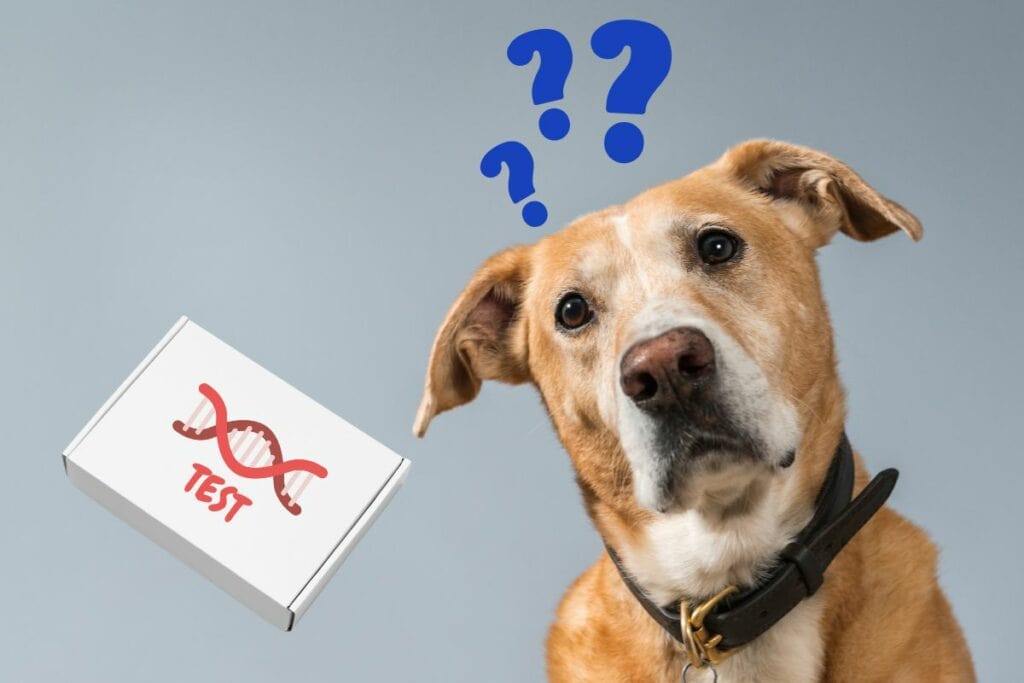Dog DNA tests are revolutionizing how we approach our pets' health and aging. These tests provide critical insights into your dog's genetic health risks and biological age, enabling proactive care and tailored health plans. However, it's important to understand that while these tests offer valuable health and age information, breed identification results are inconsistent and provide little accuracy.
What Does a Dog DNA Test Tell You?
Dog DNA tests offer a wealth of information beyond just breed identification. Here's what you can learn from these genetic tests:
- Genetic Health Risks: Some tests screen for genetic mutations linked to diseases. This proactive health screening can alert you to potential health risks, allowing for early intervention and customized care plans. For example, if you learn that your dog has a predisposition to hip dysplasia, you can take preventive measures, such as diet adjustments and specific exercises, to mitigate this risk.
- Traits and Behaviors: Learn about your dog’s inherited traits, such as coat color, ear type, and even certain behaviors. This information can help you understand and manage your dog’s behavior better.
- Age Prediction: Some advanced tests can estimate your dog’s biological age, offering insights into their aging process and how to best support them through different life stages.
Note that we didn’t put Breed identification as one of the values. Read further to find out why…
How Do Dog DNA Tests Work?
Understanding the process behind dog DNA tests can shed light on how they provide such detailed information. Here’s a step-by-step breakdown:
- Sample Collection: Most dog DNA tests require a cheek swab, collected using a test kit. Some tests may require a blood sample, but this is less common.
- Sending the Sample: After collecting the sample, you send it to the testing company's laboratory using a prepaid envelope included in the kit.
- DNA Extraction and Analysis: At the lab, DNA is extracted from the sample. The testing company uses advanced techniques like genotyping or sequencing to analyze the DNA.
- Database Comparison: The dog's DNA is compared against a vast database of known canine genetic markers to determine breed composition, health risks, and other traits.
- Receiving Results: Test results are typically available within 2-4 weeks. You can access them through an online portal or receive a printed report.
For instance, companies like Embark and Wisdom Panel offer user-friendly online platforms where you can view detailed test results, complete with breed percentages and health risks.
Dog DNA Test Cost
The cost of dog DNA tests can vary significantly, depending on the depth and breadth of the analysis provided. Here’s a breakdown of what you might expect to pay:
- Basic Breed Tests: These are usually the most affordable, ranging from $60 to $100. They focus primarily on identifying the breeds present in your dog’s genetic makeup but accept the results with caution.
- Comprehensive Health Tests: Tests that include health screenings, trait analysis, and age estimation can cost between $150 and $200.
- Premium Tests: Some premium options, like Embark’s Breed + Health Kit, can cost upwards of $200, but they offer the most detailed insights and the highest accuracy levels.
When comparing costs, it’s essential to consider the value of the information provided. For example, a more expensive test that includes health screenings can be a worthwhile investment if it helps you prevent costly health issues down the line.
How Accurate Are Dog DNA Tests?
Accuracy is a key concern with dog DNA tests, particularly for breed identification:
- Health Testing: Genetic health screenings are generally reliable. They identify specific mutations known to cause diseases, offering a probabilistic assessment of risk rather than a definitive diagnosis.
- Age Estimation: Age prediction is reasonably accurate, providing useful insights into your dog’s biological age and helping manage their care as they age.
- Breed Identification: This is where accuracy falters. Breed identification results are based on probabilities and comparisons to a database of known genetic markers. Results can be inconsistent, especially for mixed-breed dogs. Watch the video below to see how CBC Marketplace tested for accuracy and found completely inconsistent results!
For health and age insights, reputable companies claim accuracy rates of 95% or higher. However, for breed identification, take the results with a grain of salt and view them as a general guide rather than precise information.
Which Dog DNA Test is Most Accurate?
Determining the most accurate dog DNA test involves evaluating several key factors:
- Database Size: Embark and Wisdom Panel have some of the largest databases, covering hundreds of breeds and genetic markers.
- Testing Methods: Embark uses advanced genotyping techniques, which contribute to its high accuracy rates.
- User Reviews: Positive feedback from users and veterinarians can indicate the reliability of the test.
Based on these criteria, Embark is often considered the most accurate due to its comprehensive testing methods and extensive breed database. Wisdom Panel also ranks highly, offering reliable results and a broad database.
Additional Benefits of Dog DNA Tests
Beyond breed identification and health screening, dog DNA tests offer several other advantages:
- Health Testing and Early Detection: Identifying genetic predispositions to diseases allows for early intervention and tailored care plans.
- Customized Care and Diet: Knowledge of specific genetic traits can help you optimize your dog’s diet and exercise regime.
- Breed-Specific Training: Understanding your dog’s breed tendencies can improve training methods and behavior management.
- Enhanced Breed Knowledge: For breeders, DNA tests provide valuable insights into breeding strategies and improving breed standards.
For instance, knowing your dog is prone to certain dietary needs can help you select the best food, enhancing their overall health and well-being.
Frequently Asked Questions
There is no evidence that dog DNA tests are accurate. As a matter of fact, the accuracy of current technology has been disproven by countless organizations. Embark and Wisdom Panel are the most recommended due to their extensive breed databases, but results should be taken with a grain of salt.
Most dog DNA tests provide results within 2-4 weeks after the sample is received by the laboratory.
Some tests, like Embark, offer age prediction, estimating a dog's biological age. While not exact, it provides useful insights into their aging process.
Yes, dog DNA tests are reliable for identifying genetic health risks. However, they indicate predispositions, not definitive diagnoses.
Consider what information you want (breed identification, health screening, traits) and your budget. Compare features and reviews of top brands like Embark and Wisdom Panel.
If results are unclear or surprising, consult your veterinarian. They can help interpret the results and provide guidance on next steps.
While dog DNA tests can provide evidence of breed composition, their legal acceptance varies. Always check local regulations and consult legal advice if needed.
Key Takeaways
Dog DNA tests can be a powerful tool for pet owners and breeders, offering deep insights into breed, health, and traits. Whether you’re looking to understand your mixed-breed dog better, anticipate health issues, or simply satisfy your curiosity, investing in a reliable test like Embark or Wisdom Panel can provide invaluable information. Embrace the knowledge and enhance the care and understanding of your beloved canine companion.

Joseph Schifano is the President of The Academy of Pet Careers and Founder of DogNerdly.
With over 20 years of professional pet experience, Joseph got his start as an owner/operator of a 7-figure, all-inclusive pet care business. From there, he purchased The Academy of Pet Careers with a hopes of improving the quality of care provided by industry professionals. This role allowed Joseph to rub shoulders with some of the biggest names in the industry, and gain knowledge in every aspect of pet care.
After witnessing the popularity of social media influencers and the amount of misinformation being taught to pet parents, Joseph decided to create DogNerdly. The goal was to provide science-backed education for the average dog nerd in order to create a world where dogs and humans can live a more harmonious and empowered lifestyle.




